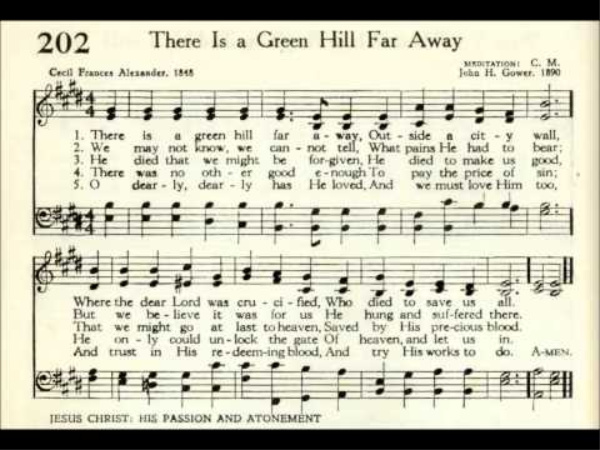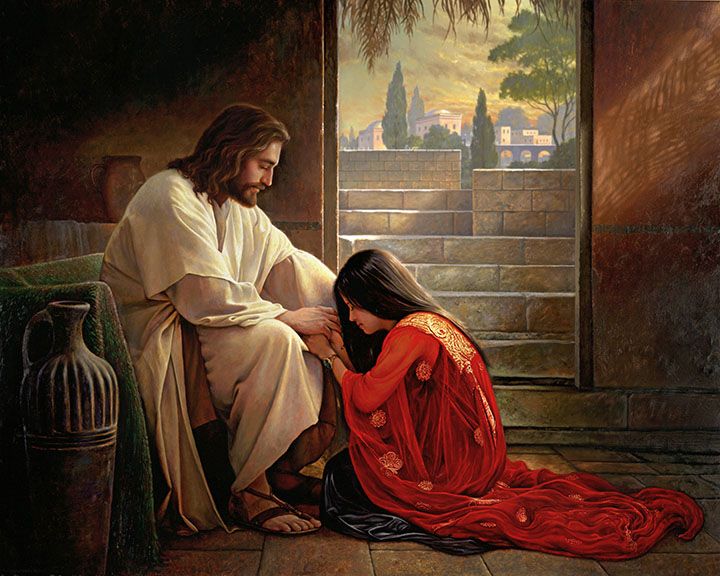Question
I recently looked up ‘There is a green hill far away’ on google, and was surprised to see the original version had five verses instead of four.
The verse not found in our LDS hymnal reads:
“He died that we might be forgiv’n,
he died to make us good,
that we might go at last to heav’n,
saved by his precious blood.”
I was wondering if there was a reason it was taken out, or maybe some doctrinal issue that I’m not seeing? Seems like a good verse to me.
Scott
Answer
Scott,
I don’t really know. But here is my take on it.
There isn’t really a doctrinal reason to remove it. But most of our hymns only include four verses maximum within the musical bars (or “system”). And for all the hymns that only have two lines, very few also print the additional verses which are sometimes printed below the musical systems. The only hymn I know of that has five verses in the system itself is “I Heard the Bells on Christmas Day.” And doggonnit if that isn’t the most beautiful Christmas Carol ever written!
There is also a lyrical reason why this particular verse was removed. It was redundant.
- The first verse refers to the setting. It is far from us both physically and spiritually. Separated from us by the wall of worldly concerns that surrounds us. But we are called to look at that far away site of the crucifixion.
- The second verse calls us to recognize how supernal the events were which occurred there. We cannot tell what pains he had to bear.
- The third and fourth verses both speak of forgiveness from sin.
- The fifth verse talks about our debt to him, and where we go from here.
Because of that redundancy, they made a decision to cut one or the other. And let’s be honest, the third verse just doesn’t sound as good. The rhyming scheme requires an older British pronunciation to make it work. And no one in the modern world uses that pronunciation anymore anyway.
I Heard the Bells… has no such deficiency. And did I mention that it is the most beautiful Christmas Carol ever written?
Sometimes decisions made by the Church are not really doctrinal. They’re practical. Isn’t it great to know that we belong to a Church that values practicality as well as a slew of other virtues?
Gramps







